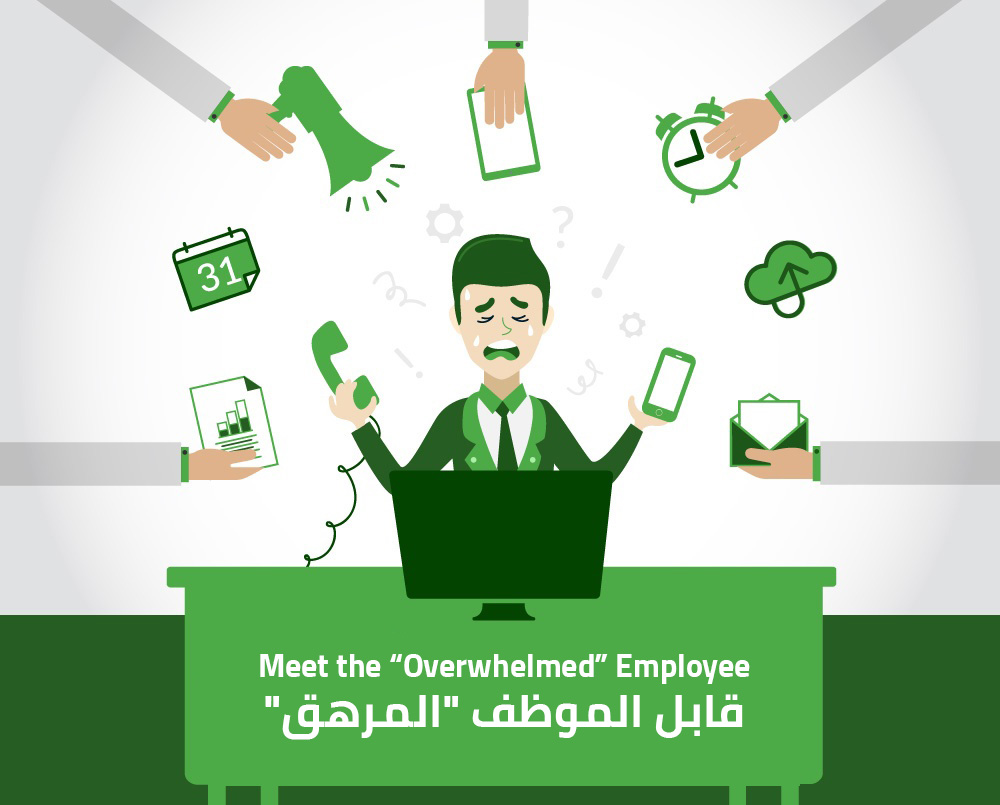Meet the “Overwhelmed” Employee

You meet him/her in the corridor as he rushes from one meeting to another, a harried look on his face. You see them hunched in front of her computer, juggling more windows than they can manage comfortably.
Average employees are talented, intelligent, and dedicated, YES. But they are so trapped in the maze of technology that they cannot concentrate on the job. They are so distracted by technology that they cannot perform to their true potential.
Bersin by Deloitte has published numerous reports on the “overwhelmed” employee. In this report, they describe this worker to be in a permanent “on” status 24x7x365—always working, hyper-connected, and overloaded with information and stimuli.
The plethora of gadgets they constantly use keeps them tethered to their job round-the-clock. According to a Gallup report, two-thirds of full-time American workers report that they have started working more outside of the usual working hours after smartphones and mobile internet came along.
Sundry social media obligations distract them as they try to work. According to neurologist Larry Rosen, your average employee focuses on a single task for only seven minutes before getting distracted. And the distraction is most likely a beeping, blinking, or buzzing phone because mobile device users check their phones about 150 times daily!
With so many distractions, productivity wanes, creativity fizzles out, learning is impaired, and performance nosedives. It is no wonder that the overwhelmed employee spends long hours at work than ever before. According to this research, 40 percent of men work more than 50 hours a week, and 80 percent of them want to do something about this situation so that they can enjoy a work-life balance.
The “overwhelmed” employee is not only standing in his/her own way but is also a drain on the company. About 65 percent of HR and training managers and business leaders recognize the sheer challenge of making these overwhelmed employees “learn.”
The mind overloaded with information and constantly distracted by stimuli can learn only so much.
 English
English
 العربية
العربية

Add New Comment